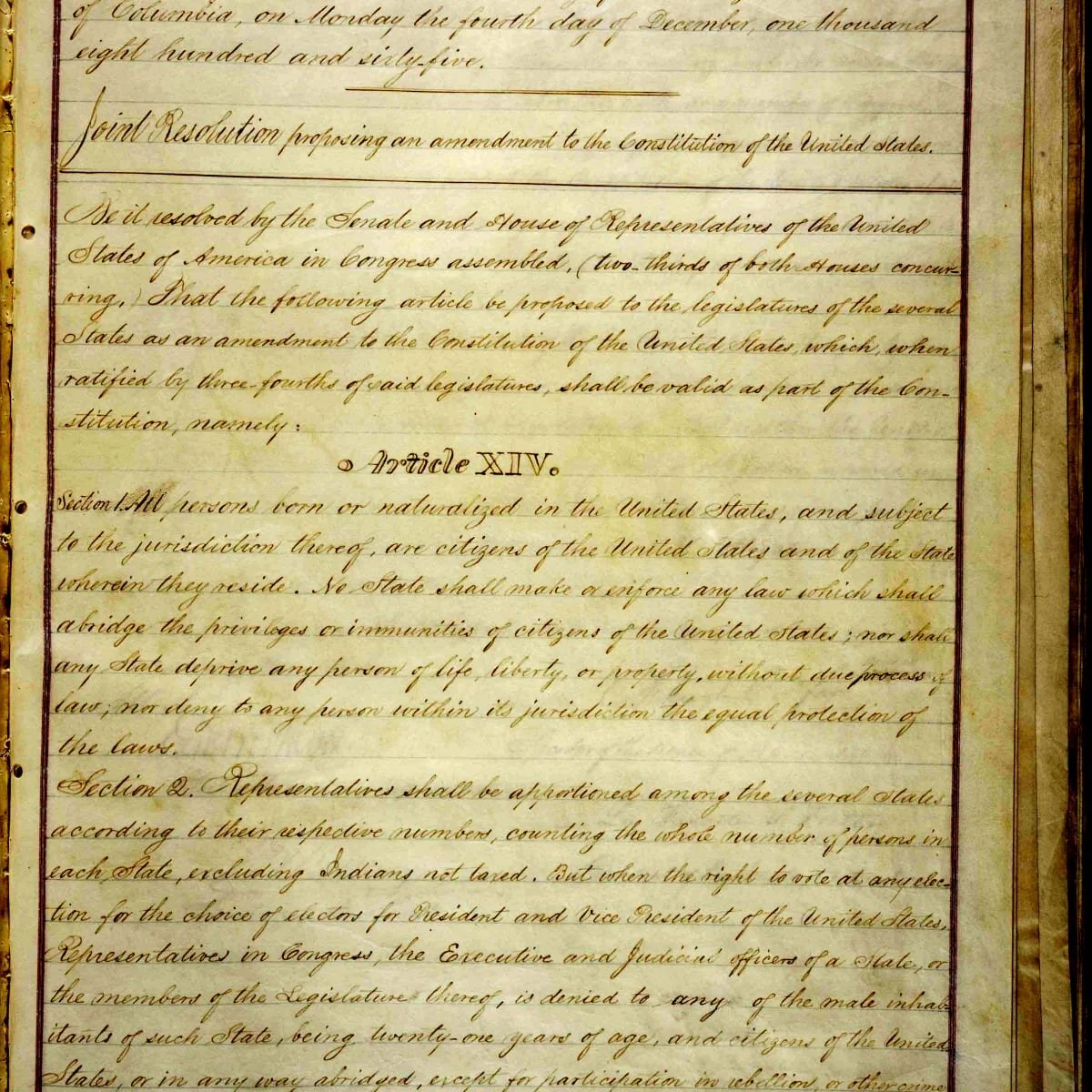Lesson of the day
Birth: Birthright Citizenship
Listen: You can listen to the episode here (Apple podcasts), on Youtube or on our website! Feel free to take notes on our graphic organizer.
Do: United States V. Wong Kim Ark (Grades 9-12)
In this episode, we learn that birthright citizenship (the principle that you are a U.S. citizen if born on U.S. soil or to a parent or parents who are themselves citizens) is established in the Fourteenth Amendment of the U.S. Constitution.
In today’s lesson, we’re going to take a look at the story of Wong Kim Ark, who sued the United States for his right to citizenship and won — and the arguments against the SCOTUS decision at the time.
First, consider the clause that makes birthright citizenship so:
Section 1, Clause 1 of the Fourteenth Amendment
“All persons born or naturalized in the United States, and subject to the jurisdiction thereof, are citizens of the United States and of the State wherein they reside.”
There’s a part of this clause, though, that tripped people up for awhile. “Subject to the jurisdiction thereof.” What the heck does that mean? What makes you subject to the jurisdiction of the United States? What would exempt you from U.S. jurisdiction? What is jurisdiction?
That question was answered in the 1898 Supreme Court case United States v. Wong Kim Ark. Watch this short video below to get the scoop on Wong Kim Ark, and then consider the Supreme Court’s decision.
All of this went down under the Chinese Exclusion Act, which denied Chinese people eligibility for achieving citizenship in the U.S.. That was the reason (according to the Customs collector who detained him) that Wong Kim was refused re-entry. But the courts ruled that it didn’t matter if Wong Kim’s parents were Chinese nationals who couldn’t become citizens.
People immediately argued against this decision. One law professor at the time basically said, it’s not enough that you’re born in the United States. The citizenship of your parents should matter, too. As you read his argument below, consider these questions:
How is this argument against birthright citizenship similar to arguments that we hear today?
What is a modern-day example of the argument made below?
The Wong Kim Ark case upholds a principle called jus soli meaning citizenship based on your place of birth. Opponents argued for jus sanguinis meaning citizenship based on family’s nationality. Which principle do you think is reflected in the American Constitution? Do you agree with the Wong Kim Ark SCOTUS case interpretation of the Fourteenth Amendment?
From the point of view of public policy, the present decision of the supreme court seems to be a distinct retrogression. In this age of rapid transit and of large migratory populations, citizenship should have a more substantial basis than the ancient feudal doctrine of birth within the allegiance.



